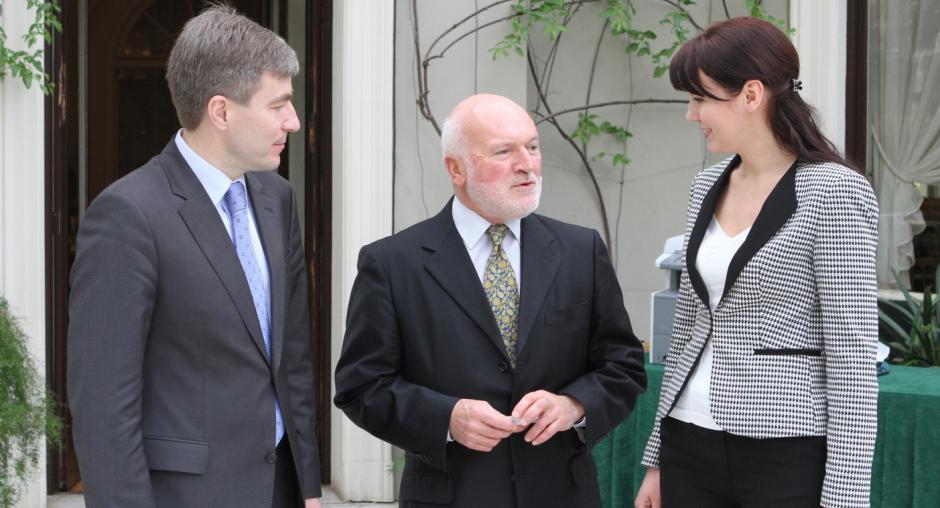Interviews: What are the positive impacts of involving women in mediation processes?
On 24 October the OSCE Gender Section launched its new publication Guidance Note on Gender-Responsive Mediation at Sabanci University in Istanbul.
Panelists Ambassador Erwan Fouere, former OSCE Special Representative for the Transdniestrian settlement process, Annika Karlsson, Regional Manager for South Caucasus and South Asia at the Swedish foundation Kvinna till Kvinna, and John Ruhoff, a Swiss diplomat in Istanbul were asked to reflect on gender responsive mediation.
Ambassador Erwan Fouere
What are the positive impacts of involving women in mediation processes?
Involving women in a mediation process, at the earliest possible stage, ensures that issues of gender equality form an integral part of a peace agreement. With their proven leadership role in civil society organizations, particularly at grassroots level, and their sensitivity to the voices of the marginalized communities, women can bring greater legitimacy and local ownership to a peace agreement and its implementation.
What suggestions do you have for high-level mediators and envoys to find entry points for the inclusion of women and gender aspects?
Since the involvement of women and the focus on gender equality issues in a mediation process is by no means automatic, the mediator can make the difference. By taking the initiative in meeting with civil society organizations including women's groups, the mediator can ensure that their views are heard and hopefully help to shape the final outcome. Sustainability of a peace agreement often depends on the degree of inclusivity in the process itself.
John Ruhoff
What are the priorities of the upcoming Swiss OSCE Chairmanship in regards to mediation and gender in 2014?
The strengthening of mediation capacities is one of the priorities of Switzerland’s incoming chairmanship. As chair of the Organization, Switzerland plans to build upon the 2004 gender action plan to develop an OSCE gender equality implementation strategy to further enhance gender mainstreaming and the implementation of all gender related commitments, including UNSCR 1325.
Have you seen the benefits of including women and gender issues in your own extensive work in the field?
Switzerland has fully recognized the need to include women in all stages and at all levels of peace processes. Gender issues are mainstreamed throughout our activities, but much work is still needed in order to make the voices of women heard in peace processes and beyond in the reconstruction, as well as in the consolidation or democratization phases. As a matter of fact, my country will publish its third and revised National Action Plan on the implementation of UN Resolution 1325, in which we also address the issue of mediation.
Annika Karlsson
What is the added value of the OSCE mediation guidance note to your work in the field?
The Guidance Note provides very concrete recommendations and advice that we and our partner organizations can use in dialogue with decision-makers and the OSCE Field Missions in the conflict areas where we work.
Do you have any practical examples of bringing women into peace processes that you could share?
We work closely with Armenian and Azerbaijani women's organizations which co-operate in bringing forward the voices of women to the OSCE Minsk Group that facilitates the mediation efforts surrounding the Nagorno-Karabakh conflict. We support the organizations with contacts and opportunities and knowledge and skills on advocacy work.

